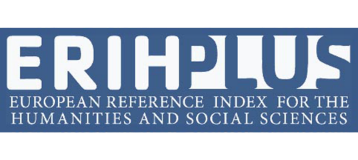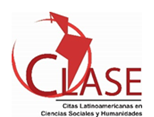Decolonising Legal Theory: The Rule of Law and the Legalisation of Legal Pluralism
DOI:
https://doi.org/10.37511/viaiuris.n36a2Keywords:
rule of law, epistemology, customary law, legal systems, indigenous peoples, constitutional lawAbstract
This paper aims to show the theoretical limits of the rule of law concept when contrasted with legal pluralism, showing that it belongs to the modern/colonial matrix of laws, which creates an official law to the detriment of other illegalised and persecuted legal knowledge. This is a theoretical, qualitative, and decolonial research that gathers quantitative normative data, such as the expansion of the legalisation of legal pluralism to almost 40% of the world's countries. The originality consists of showing the links between law and coloniality and highlighting the theoretical crisis of the rule of law concept. In this scenario, the concept of the plural rule of law is put forward to continue the quest for epistemological justice.
Downloads
References
Anghie, A. (2004). Imperialism, Sovereignty and the Making of International Law. Cambridge University Press.
Araújo, S. (2014). Ecologia de justiças a Sul e a Norte. Cartografias comparadas das justiças comunitárias em Maputo e Lisboa. (Unpublished PhD thesis) Coimbra University.
Barreto, J. (2018). Decolonial Thinking and the Quest for Decolonising Human Rights. Asian Journal of Social Science, 46(4-5), 484 - 502.
Barrientos Grandón, J. (1999). Un canonista peruano del siglo XVII: Feliciano de Vega (1580-1640). Revista Chilena de Historia del Derecho, 18, 101-118.
Bazán Seminario, C. (2019). Lawyers as Legal Guardians of the Coloniality of Power. RCSL Newsletter. International Sociological Association. Research Committe on Sociology of Law, 2, 26-28.
Benda-Beckmann, F. (2002). Who´s afraid of Legal Pluralism? Journal of Legal Pluralism and Unofficial Law, 34(47), 37 - 82.
Boatcă, M. (2015). Global Inequalities Beyond Occidentalism. Ashgate Publishing Limited.
Constitución Política del Estado de Bolivia [CPE]. (2009).
Constitución Política de Colombia [C.P.]. (1991).
Constitución de la República de Ecuador [C.P]. (2008).
Congreso de la República de Perú. (1993). Constitución Política de Perú [C.P.].
Dann, P., y Hanschmann, F. (2012). Postkoloniale Theorien, Recht und Rechtswissenschaft. Einleitung in den Schwerpunkt. Kritische Justiz, 45(2), 127-130.
Darian-Smith, E. (2013). Postcolonial Theories of Law. In R. Banakar, & M. Travers(Ed.), Law and Social Theory (pp. 247-264). Hart Publishing.
De Asis Roig, R. (2006). Sobre el concepto de Estado de Derecho. Ius et Veritas, 16(33), 324-331.
De la Torre, A. (1997). Caminos sin reciprocidad: el proceso de las rondas campesinas en la provincia de Cajamarca (1985-1993). In E. Gonzáles de Olarte, B. Revesz, & M. Tapia (Ed.), Perú: El problema agrario en debate - SEPIA VI- Cajamarca (pp. 617 - 639). Seminario Permanente de Investigación Agraria.
Dussel, E. (1994). 1492. El encubrimiento del Otro. Hacia el origen del "mito de la Modernidad". Plural Editores.
Dussel, E. (2004). Transmodernidad e interculturalidad. Interpretación desde la Filosofía de la Liberación. Erasmus: Revista para el diálogo intercultural, 5(1-2), 1-28.
Dussel, E. (2005). Origen de la filosofía política moderna: Las Casas, Vitoria y Suárez. Caribbean Studies, 33(2), 35-80.
Eberhará, C., y Gupta, N. (2005). Legal pluralism in India: An Introduction. Indian Socio-Legal Journal, 31, 1-10.
Escobar, A. (2005). Más allá del Tercer Mundo. Globalización y diferencia. Instituto Colombiano de Antropología e Historia.
Garay, N. (2016). Reflexiones sobre las contribuciones del pensamiento «decolonial» en la enseñanza del derecho constitucional. Pensamiento Constitucional, 21(21), 81 - 105.
Gargarella, R. (2018). Sobre el "Nuevo constitucionalismo latinoamericano". Revista Uruguaya de Ciencia Política, 27(1), 109 - 128.
Gebeye, B. A. (2017). Decoding legal pluralism in Africa. The Journal of Legal Pluralism and Unofficial Law, 49(2), 228 - 249.
Griffiths, J. (1986). What is Legal Pluralism? Journal of Legal Pluralism and Unofficial Law, 18(24), 1-55.
Griffiths, A. (2002). Legal Pluralism. In Banakar, R. & Travers, M. (Ed.), An Introduction to Law and Social Theory (pp. 289 – 310). Hart Publishing,
Grimm, D. (2006). Das staatliche Gewaltmonopol. In F. Anders, & I. Glicher-Holtey (Ed.), Herausforderungen des staatlichen Gewaltmonopol. Recht und politisch motivierte Gewalt am Ende des 20. Jahrhunderts (pp. 18 - 38). Campus Verlag.
Guevara, A., y Thome, J. (1992). Notes on Legal Pluralism. Beyond Law, 2(5), 75 - 102.
Holzinger, K., Haer, R., Bayer, A., Behr, D., y Neupert-Wenz, C. (2019). The Constitutionalization of Indigenous Group Rights, Traditional Political Institutions, and Customary Law. Comparative Political Studies, 52(12), 1775-1809.
Holzinger, K., Kern, G., y Komrey, D. (2020). Explaining the Constitucional Integration and Resurgence of Traditional Political Institutions in Sub-Saharan Africa. Political Studies, 68(4), 973 - 995.
International Labour Organization [ILO]. (1989). Indigenous and Tribal Peoples Convention, 1989. https://www.ilo.org/dyn/normlex/en/f?p=NORMLEXPUB:55:0::NO::P55_TYPE,P55_LANG,P55_DOCUMENT,P55_NODE:REV,en,C169,/Document
Lander, E. (2000). La colonialidad del saber: eurocentrismo y ciencias sociales. Perspectivas latinoamericanas. Consejo Latinoamericano de Ciencias Sociales.
Lazarev, E. (2019). Laws in Conflict: Legacies of War, Gender, and Legal Pluralism in Chechnya. World Politics, 71(4), 667-709.
Mattei, U., & Nader, L. (2008). Plunder. When the rule of law is Illegal. Blackwell Publishing.
Meneses, M. y Bidaseca, K. (2018) Introdução: As Epistemologias do Sul como expressão de lutas epistemológicas e ontológicas. In Meneses, M. y K. Bidaseca (Coord.) Epistemologías del Sur. (pp. 11-21). Consejo Latinoamericano de Ciencias Sociales.
Merkel, W., Puhle, H., Aurel, C., Eicher, C., y Thiery, P. (2003). Defekte Demokratie. VS Verlag für Sozialwissenschaften Wiesbaden.
Merkel, W. (2004). Embedded and Defective Democracies. Democratization, 11(5), 33-58.
Mignolo, W. (2009). La idea de América Latina (la derecha, la izquierda y la opción decolonial). Crítica y Emancipación, 2, 251-276.
Mignolo, W. (2012). Who Speaks for the “Human” in Human Rights? In J.-M. B. (Ed.), Human Rights from a Third World Perspective: Critique, History and International Law (pp. 44-64). Cambridge Scholars.
Moore, S. (1978). Law as Process: An Anthropological Approach. Routledge and Kegan Paual.
Pospíšil, L. (1971). Anthropology of Law: A comparative theory. Harper & Row.
Quijano, A. (1992). Colonialidad y Modernidad/Racionalidad. Perú Indígena, 13(29), 11 - 20.
Quijano, A. (2000). Colonialidad del poder, eurocentrismo y América Latina. In E. Lander (Comp.), La colonialidad del saber: eurocentrismo y ciencias sociales. Perspectivas latinoamericanas (pp. 122-151). Consejo Latinoamericano de Ciencias Sociales.
Rodriguez, F., y Bazán Seminario, C. (2023). Authoritarian practices between ‘para-coloniality’ and ‘cheap security’: when Chinese state capital meets neoliberal copper mining (and protests) in Las Bambas, Peru. Globalizations, 20, 1-19. DOI: 10.1080/14747731.2023.2179813.
Sánchez Botero, E. (2014). Algunos presupuestos epistemológicos y metodológicos de la antropología jurídica. In M. Castro Lucic (Ed.), Los puentes entre la antropología y el derecho. Orientaciones desde la antropología jurídica (pp. 143 - 188). Universidad de Chile.
Sousa, B. (1987). Law: A Map of Misreading. Toward a Postmodern Conception of Law. Journal of Law and Society, 13, 299-336.
Sousa, B. (2002). Toward a Multicultural Conception of Human Rights. In B. Hernández-Truyol (Ed.), Moral Imperialism. A Critical Anthology (pp. 39 - 60). University Press.
Sousa, B. (2018). Para una teoría sociojurídica de la indignación: ¿es posible ocupar el derecho? In B. S. Santos, Bifurcaciones del orden. Revolución, ciudad, campo e indignación (pp. 243-266). Trotta, Siglo del Hombre editores.
Stewart, I. (1990). The Critical Legal Science of Hans Kelsen. Journal of Law and Society, 17(3), 273 - 308.
Taiwo, E. (2005). Repugnancy clause and its impact on customary law: Comparing the South African and Nigerian positions-Some lessons for Nigeria. Journal for Juridical Science, 34(1), 89-115.
Tamanaha, B. (2004). On the rule of Law. History, Politics, Theory. Cambridge University Press.
Tamanaha, B. (2021). Legal Pluralism across the Global South: Colonial Origins and Contemporary Consequences. Journal of Legal Pluralism and Unofficial Law, 21, 1-64. DOI: 10.1080/07329113.2021.1942606
Theurer, K., & Kaleck, W. (2020). Dekolonialisierung des Rechts - Ambivalenzen und Potezial. In K. Theurer, & W, Kaleck, (Ed.), Dekoloniale Rechtskritik und Rechtspraxis (pp. 11-58). Nomos.
United Nations, General Assembly. (2012). Declaration of the High-level Meeting of the General Assembly on the rule of law at the National and International Levels. Resolution adopted by the General Assembly.
Warat, L. A. (1981). A purezo do poder. Uma análise crítica da teoria jurídica. Universidad Federal de Santa Catarina.
Wolkmer, A. C. (2017). Teoría crítica del derecho desde América Latina. Akal/Interpares.
Wolkmer, A. C., & Heanning, A. C. (2017). Aportes saidiano para um Direito (Des)Colonial: sobre iconologia de revoluções e odaliscas. Seqüência, 77, 51-88.
World Justice Project. (2020). rule of law Index 2020. World Justices Project.
Zenker, O., & Hoehne, M. V. (2018). The State and the Paradox of Customary Law in Africa. Routledge.
Downloads
Published
Issue
Section
License
Copyright (c) 2024 Revista Vía Iuris

This work is licensed under a Creative Commons Attribution-NonCommercial-ShareAlike 4.0 International License.

This work is licensed under a Licencia Creative Commons Atribución-NoComercial-













.png)
